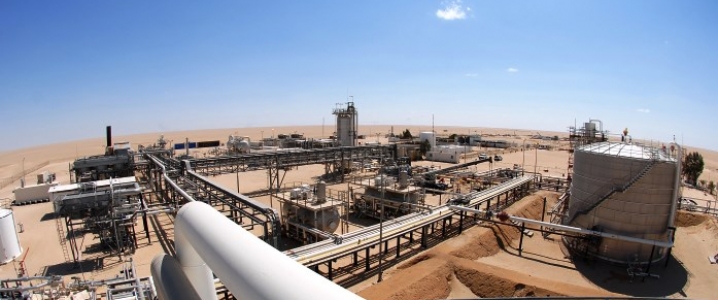The oil supply disruption in Libya could last a little longer than previously thought, threatening to tighten global supplies at a time when a supply deficit was already starting to become a serious problem.
Libya’s two largest oil export terminals, Ras Lanuf and Es Sider, were knocked offline a few weeks ago after clashes between rival militias disrupted operations. At least two storage tanks were destroyed in the fighting, and an estimated 450,000 bpd of oil exports were disrupted.
Oil prices responded to the news, but traded up only modestly. In contrast, oil prices spiked in early May when the Trump administration pulled out of the Iran nuclear deal, which at the time, was thought to lead to the disruption of around 400,000 bpd of Iranian supply. In other words, the expected Iran outage – which hadn’t even happened yet – added several dollars to the price of crude while an outage in Libya of similar size barely moved the market.
That was because the disruption was thought to be temporary, and indeed it could be. But the problems have not yet been resolved and several weeks on from the disruption, it is starting to look like the issue could become a protracted one.
While the fighting subsided at the export terminals, the Libyan National Army (LNA), led by General Khalifa Haftar, has announced plans to hand over the oil export terminals to an oil company based out of Benghazi in the eastern part of the country, not to the internationally-recognized National Oil Corp. based in Tripoli.
Related: Shale CEO: U.S. To Be The World’s Top Oil Producer By Fall
The jockeying for control over Libya’s oil assets led to severe supply disruptions a few years ago, which forced production levels to bounce around between 300,000 and 500,000 bpd for quite some time, down from pre-war levels at 1.6 million barrels per day. Only in 2017 did the country begin to restore some lost output, as a period of relative quiet allowed operations to resume. Libya’s oil production rose to about 1 mb/d late last year, and stayed mostly at that level up until the latest fighting.
Production is now thought to be down to around 700,000 bpd. But the fight for control over the export terminals could leave supply stuck on the sidelines for an extended period of time.
The eastern government says that it is handing over the ports to the eastern oil company because oil revenues under the Tripoli-based NOC had been going to “militias and extremist groups.”
But by doing so, the LNA has created a whole new set of problems. The move is not recognized as legitimate by much of the world, and the U.S. and the EU moved quickly to try to block the East Libyan faction from exporting crude oil in what many are calling illegal sales. The U.S., the UK, France and Italy expressed dismay at the transfer of the ports to “an entity other than the legitimate National Oil Corporation.”
The European Union would “continue to counter any attempt to trade Libyan oil outside the internationally recognized official channels,” the EU said in a statement.
“We are confident the international legal regime will hold and NOC East will not be able to export,” Mustafa Sanalla, the head of the NOC in Tripoli said. “Companies entering into illegal contracts with parallel institutions will be pursued by all legal options, including UN sanctions.”
Related: U.S. Overtakes Saudi Arabia In Recoverable Oil Reserves
For its part, East Libya said on June 27 that it could avoid international pressure by stashing oil revenues in Libyan banks based in the east. “We undertake that the money won’t go to someone shorn of legitimacy,” the head of the “NOC” based in Benghazi said at a ceremony handing over the oil export terminals to the eastern government, according to Reuters. His comments were in reference the head of Tripoli’s central bank head. “We have a central bank in (the eastern town of) Bayda, and it is recognized by the Libyan parliament.”
It is unclear how this will all shake out. But the battle for control of the export terminals threatens to prevent Libyan oil from begin exported. The eastern NOC ordered the halt of exports from five eastern ports, and any attempt by oil tankers to load oil from them under previous arrangements will be declared illegal. Yet, the EU and the U.S. are calling any exports under the auspices of the eastern government illegal. The clash could result in a stalemate and keep a certain volume of oil exports at a standstill for the near-term.
“The dispute over oil marketing rights in Libya is becoming increasingly acute. For the first time, permission to dock in an East Libyan port was denied to an oil tanker under contract with the state oil company NOC that is based in the capital, Tripoli,” Commerzbank wrote in a note. “There is therefore a risk of sizeable supply outages for the time being.”
The outage is significant, especially since OPEC+ and the rest of the oil world had not factored in lost supplies from Libya until only recently. Saudi Arabia has promised to fill any supply gap, but the loss of Libyan oil comes at an inopportune time, when disruptions are mounting in Venezuela, Iran and even in Canada. It is no wonder that oil prices have moved back to three-year highs.
By Nick Cunningham of Oilprice.com
More Top Reads From Oilprice.com:
- Core OPEC Ramps Up Production Ahead Of Meeting
- Why OPEC Won't Flood The Oil Market
- U.S.-China Trade War Will Hurt Shale Drillers


















